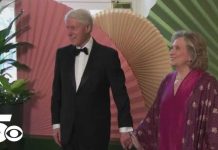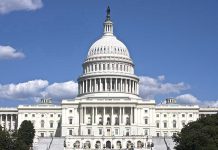
A new policy threatens free speech, sparking a debate over the balance between security, liberty and social morals.
Story Highlights
- Secretary of State Marco Rubio announces visa revocation policy for foreign nationals supporting political violence.
- The policy targets those celebrating the assassination of political figures, linking visa status to political expression.
- Critics argue this move infringes on free speech and lacks transparency.
- Over 1,800 students and recent graduates have already been affected.
Policy Overview: Linking Visa Status to Political Expression
Secretary of State Marco Rubio revealed a controversial policy targeting foreign nationals in the U.S. who express support for violence against political figures. This initiative links visa status to political expression, a significant shift in U.S. immigration policy. The policy, executed under Section 212(a)(3)(C) of the Immigration and Nationality Act, aims to safeguard national security by deporting individuals perceived as threats.
Implementation and Immediate Impacts
Since its announcement, the policy has led to over 1,800 visa revocations, with the Department of Homeland Security and ICE enforcing deportations. The policy uses AI tools to monitor social media, flagging individuals for review. Critics highlight a lack of transparency, as many affected students are not notified until after their visas are revoked, causing confusion and distress among international communities.
Universities and advocacy groups express concerns over potential due process violations and the chilling effect on international academic participation. They argue that the policy could damage the reputation of U.S. higher education and deter talented international students and scholars from choosing American institutions.
Broader Implications and Ongoing Debate
The policy has sparked a heated debate over the balance between national security and individual liberties. Supporters argue it defends U.S. sovereignty and public order, while opponents view it as an overreach that threatens free speech and academic freedom. As legal challenges unfold, the policy’s long-term impacts on U.S. foreign relations, higher education, and international discourse remain uncertain.
Sources:
U.S. Department of State press releases and statements
Congressional and advocacy group letters and reports
University communications and legal advisories
Official remarks from Secretary of State Marco Rubio


















